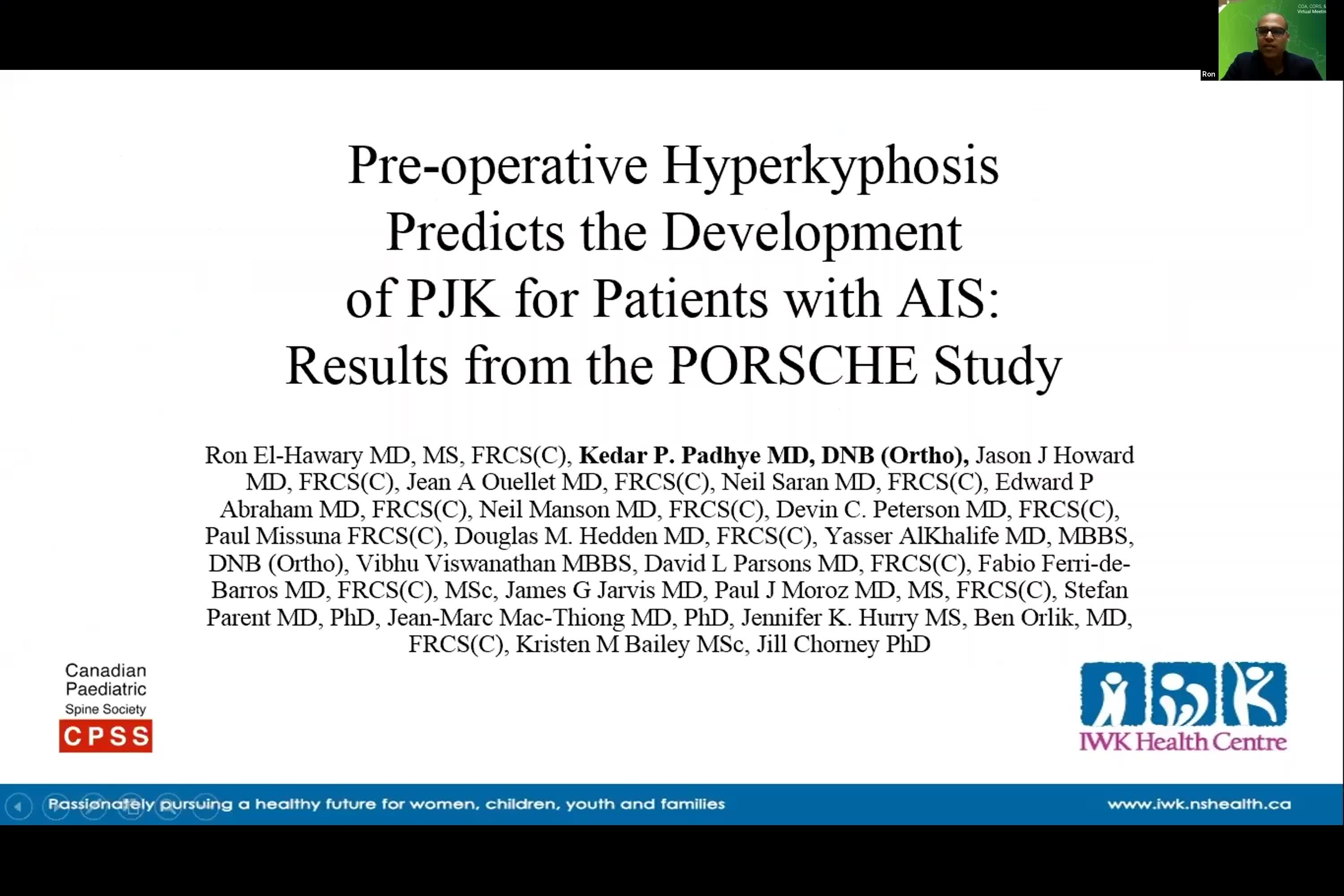Please login to view this media

- Talk
- Canada
Pre-Operative Hyperkyphosis Predicts The Development Of Proximal Junctional Kyphosis (PJK) For Patients With Adolescent Idiopathic Scoliosis (AIS): Results From The PORSCHE Study
Description
In this presentation led by Kedar Padhye, the speaker discusses a multicenter cohort study investigating proximal junctional kyphosis (PJK) in patients with adolescent idiopathic scoliosis (AIS) undergoing instrumented spine surgery. The presentation begins with an introduction and acknowledgments before diving into the study's objectives, which focus on identifying preoperative radiographic predictors for PJK and assessing its impact on pain and quality of life.
The study involved eight Canadian centers and originally included 220 participants, with 163 meeting the inclusion criteria. PJK was defined as a proximal junctional angle (PJA) greater than 10 degrees, with a notable 17% of patients developing PJK within two years post-surgery. The analysis revealed that there was no significant difference in the number of levels fused or the upper instrumented vertebrae between the groups with and without PJK, but significant differences in preoperative kyphosis were noted.
The findings suggest that patients exhibiting a preoperative kyphosis greater than 40 degrees are more likely to develop PJK. Interestingly, the presence of PJK did not correlate with increased pain or reduced quality of life. The presentation concludes by acknowledging the significance of preoperative kyphosis in predicting PJK development, while also noting the lack of relationship between PJK and health-related outcomes.